Law and Order
Trump’s Crypto Conflicts Dominate Stablecoin Legislation Debate
Published
1 week agoon
By
admin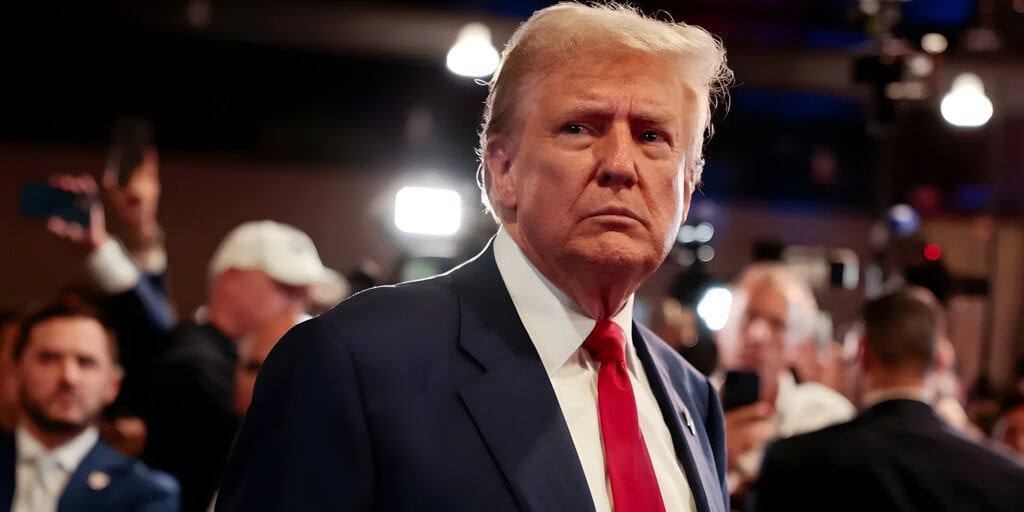
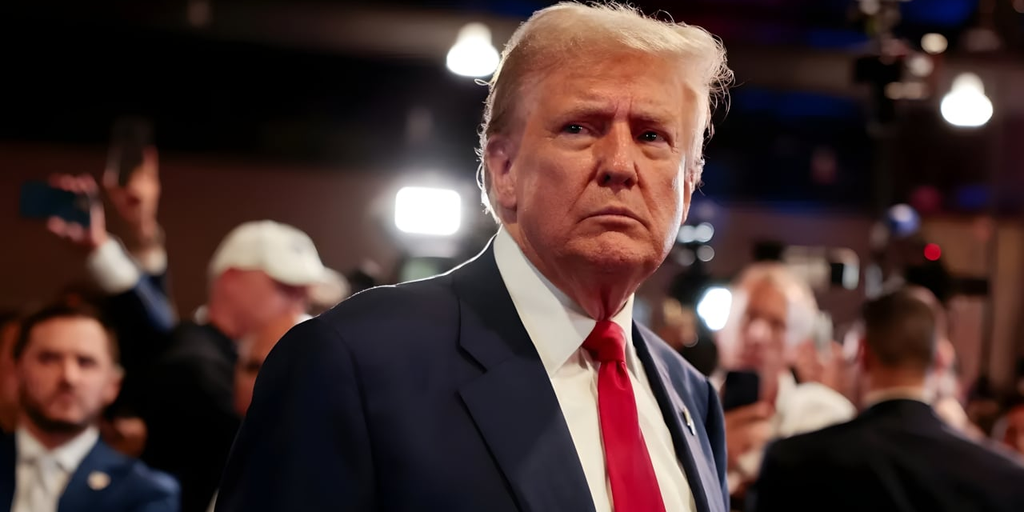
A House Financial Services Committee markup of stablecoin legislation appeared to go off course Wednesday, with Democrats spending hours hammering home the same message: Democrats would in principle support the STABLE Act, but see President Donald Trump’s personal involvement in the stablecoin sector as an unacceptable conflict of interest.
Multiple Democrats, including a co-sponsor of the STABLE Act itself, offered amendments to the bill on Wednesday that would have prevented the president, his cabinet, the first lady, and special government employees like Elon Musk from offering stablecoin products while in office.
One by one, over the course of hours, those amendments were shot down by voice vote the Committee’s slim Republican majority.
Republican leadership countered the proposals by arguing the STABLE Act currently requires all issuers to comply with the same rules, and that boxing out certain issuers—even the sitting president himself—would stifle market competition. The Act would create a set of rules, involving compliance with anti-money laundering laws and reserve audits, that all stablecoin issuers would have to comply with to operate in American markets.
“We’re not picking winners and losers here,” Committee Chair French Hill (R-AR) said. “If you don’t want to use a payment stablecoin, don’t use one.”
Numerous Democrats took issue with the position that the Trump family’s recently announced stablecoin, the World Liberty Financial USD1 token, should be treated like any other.
“He is unlike any other issuer because he’s the president of the United States,” Rep. Stephen Lynch (D-MA) retorted. “And he’s going to take U.S. taxpayer money to assist his family business when it gets in trouble.”
Stablecoins are digital assets pegged to the U.S. dollar that allow cryptocurrency traders to enter and exit positions without the need to access dollars directly. Some stablecoin issuers, like the Trump-backed World Liberty Financial, purport to strengthen U.S. dollar hegemony by encouraging the use of dollar-backed assets in both foreign and digital asset markets. But absent a regulatory framework in the United States, the legality of such products remains in question.
The Trump family’s lucrative crypto investments have caused some controversy ever since the president returned to the White House, where he is currently overseeing the creation of the nation’s first ever digital assets regulatory framework. But the Trump family’s announcement last week of a stablecoin product—right at the moment that stablecoin legislation is moving quickly through both chambers of Congress—appears to have struck a particularly resonant chord with Democrats.
The timing appears to have been inadvertent. A source with direct knowledge of the matter told Decrypt that World Liberty did not intend to roll out its stablecoin so soon. The revelation of blockchain data concerning the product, though, appears to have forced the team’s hand.
It remains unclear whether the flare up over Trump’s crypto dealings will meaningfully change the calculus when it comes to bipartisan support for the STABLE Act, which has until now been widely expected to earn a fair number of Democrat votes. One House Financial Services Committee staffer told Decrypt Wednesday they do not anticipate much has changed after today’s mark up, in terms of Democrat support for the bill.
And yet on Monday, Rep. Hill, the Committee’s Republican chair, took the rare step of conceding that Trump’s crypto dealings—particularly, the president’s stablecoin and meme coin projects—have made the task of creating legislation in the same areas “more complicated.”
Some Democrats already cosponsoring the STABLE Act, including Rep. Sam Liccardo (D-CA), issued forceful rebukes of Trump’s crypto dealings on Wednesday. Liccardo said the need to prevent high-ranking officials like Trump from offering their own stablecoins was “self-evident and obvious,” and highlighted the potential for such tokens to offer foreign actors a means to curry favor with the president.
Another House staffer familiar with the work of the House Financial Services Committee told Decrypt, however, that Democrats who already cosponsored the bill embraced it last month as it was written then—and are unlikely to change their positions over tweaks that, while important, may not be existential.
“You can connect the dots on what will happen if those amendments don’t get in,” the staffer said.
Daily Debrief Newsletter
Start every day with the top news stories right now, plus original features, a podcast, videos and more.
Source link
You may like


CryptoPunks NFT Sells for $6 Million in Ethereum—At a $10 Million Loss


SEC drops suit against Helium for alleged securities violations


Tokenized Gold Nears $2B Market Cap as Tariff Fears Spark Safe Haven Trade
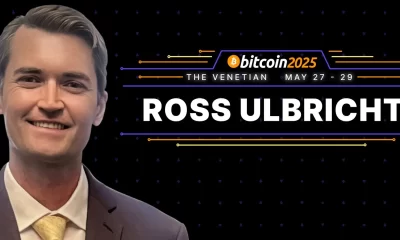

Ross Ulbricht To Speak At Bitcoin 2025


Solana Eyes $200 Target As It Gains Momentum – Recovery Could Mirror 3-Month Downtrend


BTC-denominated insurance firm meanwhile secures $40m in VC funding
Law and Order
Block Agrees to $40M NYDFS Penalty Over Lackluster Compliance Program
Published
9 hours agoon
April 10, 2025By
admin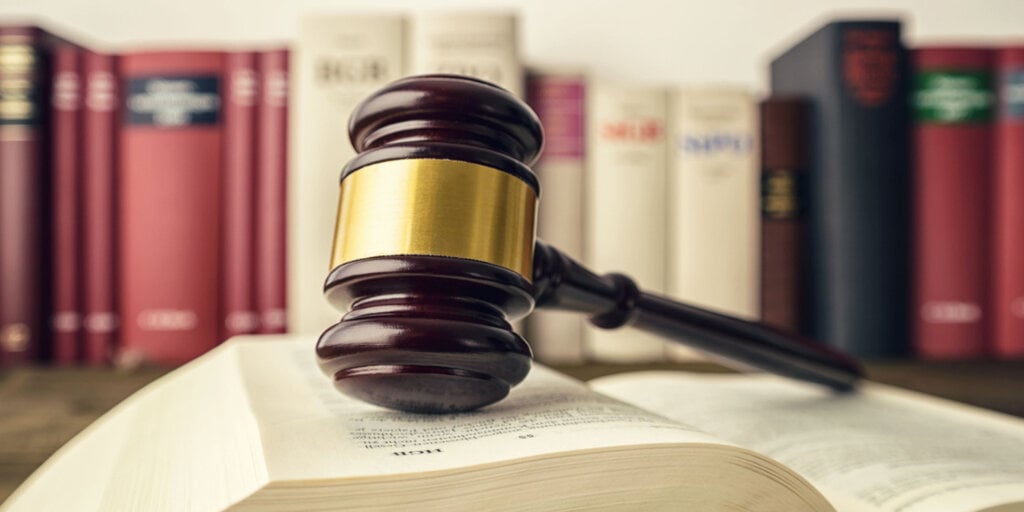
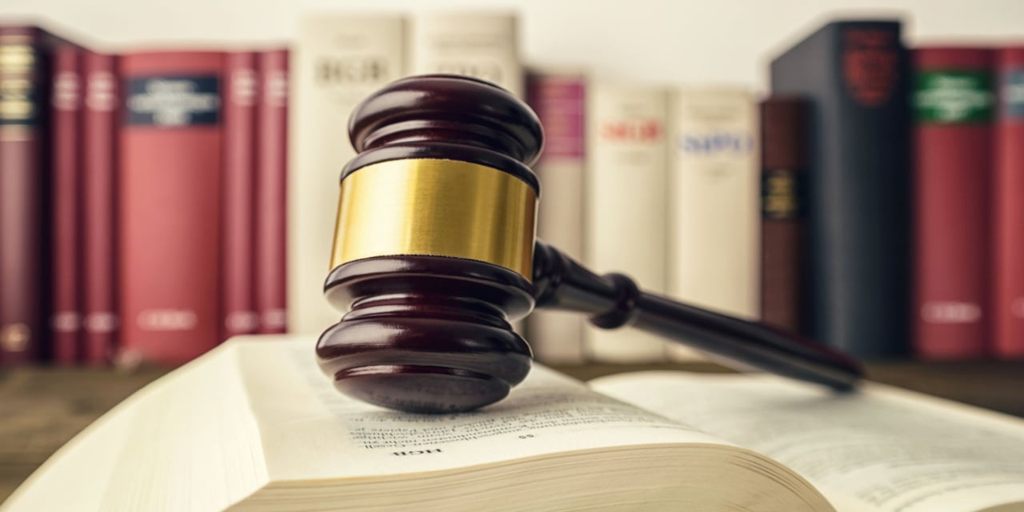
Block, Inc. has agreed to a $40 million settlement with the New York Department of Financial Services (NYDFS) for “significant failures” in its anti-money laundering compliance program, the Wall Street regulator announced on Thursday.
The company led by Jack Dorsey has agreed to retain an independent monitor after violating the Department’s money transmitter and virtual currency rules, the NYDFS added.
The NYDFS found that Block’s company had “inadequate customer due diligence” and failed to implement systems sufficient for preventing money laundering and illicit activity.
Block’s services were “vulnerable to criminal exploitation,” the NYDFS said, arguing that Block’s “lax treatment” of Bitcoin transactions allowed largely anonymous transactions to evade scrutiny.
“Compliance functions must keep pace with company growth or expansion,” NYDFS Superintendent Adrienne A. Harris said in a statement.
With its so-called BitLicense, Block’s Cash App had been regulated under the NYDFS as a virtual currency business since 2018.
Last year, Cash App ended its support for free peer-to-peer (P2P) Bitcoin payments, while leaning into other cryptocurrency services that users have gravitated toward.
Edited by James Rubin
Daily Debrief Newsletter
Start every day with the top news stories right now, plus original features, a podcast, videos and more.
Source link
Law and Order
OpenAI Countersues Elon Musk, Accuses Billionaire of ‘Bad-Faith Tactics’
Published
17 hours agoon
April 10, 2025By
admin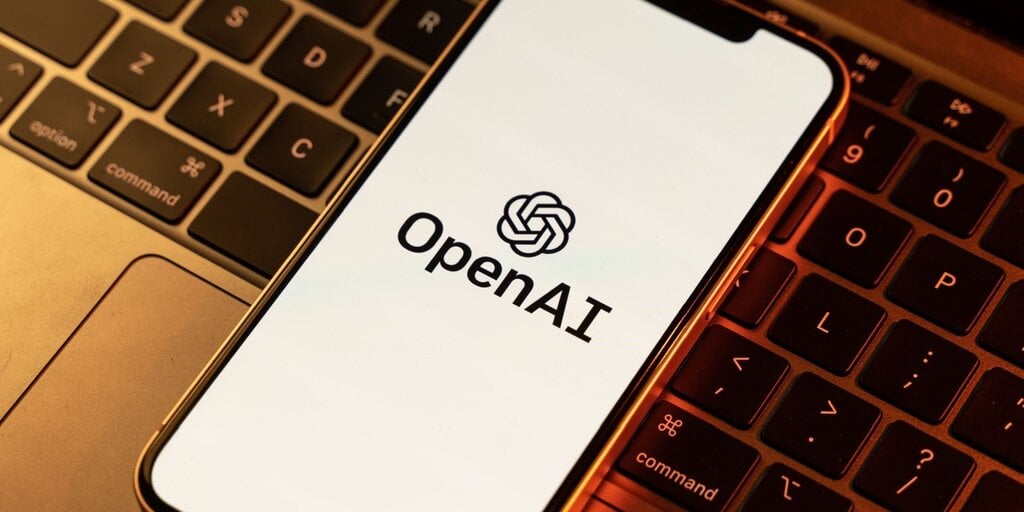

OpenAI says Elon Musk didn’t just leave the company; he tried to take it over, and the AI research giant says it has the emails to prove it.
In a newly filed countersuit, OpenAI accuses Tesla CEO Elon Musk of attempting a hostile takeover of the company he helped found, using what it called “bad-faith tactics” and a “self-serving narrative.”
OpenAI seeks to block Elon Musk’s alleged campaign of harassment and disruption, centered on a sham $97 billion takeover bid, while seeking compensatory and punitive damages to be determined at a possible trial, along with injunctive relief to prevent further interference.
Elon’s nonstop actions against us are just bad-faith tactics to slow down OpenAI and seize control of the leading AI innovations for his personal benefit. Today, we counter-sued to stop him.
— OpenAI Newsroom (@OpenAINewsroom) April 9, 2025
“These antics are just history on repeat—Elon being all about Elon,” OpenAI’s official newsroom wrote in a scalding post on X as it shared internal emails showing Musk pushing to convert OpenAI into a for-profit entity.
While Musk has consistently argued that OpenAI strayed from its original nonprofit mission, OpenAI alleges Musk himself was the first to push for a structural overhaul, so long as he was in charge.
As shown in the emails, in November 2015, Musk began questioning OpenAI’s structure in an email to CEO Sam Altman, writing that a “standard C corp with a parallel nonprofit” would likely align incentives better.
Decrypt has yet to independently verify the emails put forth by OpenAI. Representatives for Musk’s companies, Tesla and SpaceX, did not immediately respond to Decrypt’s request for comment.
For-profit necessity
In June and July 2017, as OpenAI’s need for compute scaled with its Dota 2 experiments, Musk allegedly encouraged expansion, writing, “Let’s figure out the least expensive way to ensure compute power is not a constraint.”
And that summer, discussions shifted. On July 13, 2017, Musk allegedly agreed a for-profit model might be necessary. Days later, he warned that China’s AI ambitions were another reason to “change course.”
OpenAI claims that in September 2017, Musk made his move, pushing for “initial control” over OpenAI’s board in exchange for capital and demanding to be CEO.
Emails from that month show him proposing a structure where he’d appoint four out of seven board seats. “I would unequivocally have initial control of the company,” he allegedly wrote.
OpenAI alleges Musk also directed his team to incorporate a for-profit shell company, Open Artificial Intelligence Technologies, Inc., with plans to rehouse OpenAI’s IP under it.
Pushback
But OpenAI pushed back. In a candid message, co-founders warned that Musk’s structure risked creating an “AGI dictatorship.”
They rejected the terms. Musk’s response: “Discussions are over. I will no longer fund OpenAI.”
In January 2018, Musk allegedly proposed spinning OpenAI into Tesla, saying it was the only way to raise the billions needed. “OpenAI is on a path of certain failure relative to Google,” he wrote.
According to OpenAI, the team declined again, unwilling to become a Tesla subsidiary. By February 2018, Musk resigned as co-chair and parted ways with OpenAI.
Years later, he has now returned, and this time through the courts.
In March, Musk’s lawsuit against OpenAI sought to block its transition to a capped-profit structure. A U.S. judge denied the injunction but agreed to an expedited trial, set for fall 2025.
OpenAI had previously released Musk’s emails earlier last year in response to the lawsuit, painting a picture of a founder who, despite his public stance, was already advocating for profit, exclusivity, and consolidation, years before filing suit.
Amid the chaos, Musk has founded a rival AI startup, xAI, which last month merged with X in an all-stock deal valuing xAI at $80 billion.
OpenAI, for its part, announced a $40 billion funding round led by SoftBank, pushing its valuation to $300 billion. That’s nearly four times the valuation tied to Musk’s xAI startup.
“We’re getting ready to build the best-equipped nonprofit the world has ever seen,” OpenAI said in its countersuit. “The idea that we abandoned the mission is false. Elon’s own emails make that clear.”
Edited by Sebastian Sinclair
Generally Intelligent Newsletter
A weekly AI journey narrated by Gen, a generative AI model.
Source link
Law and Order
US Lawmakers Clash Over Trump Meme Coin Launch, Crypto Regulation
Published
1 day agoon
April 9, 2025By
admin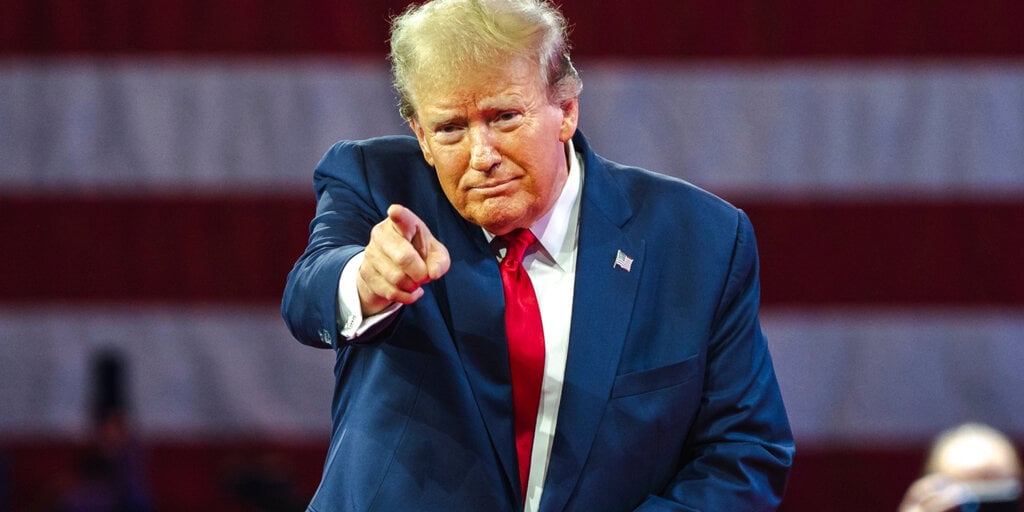
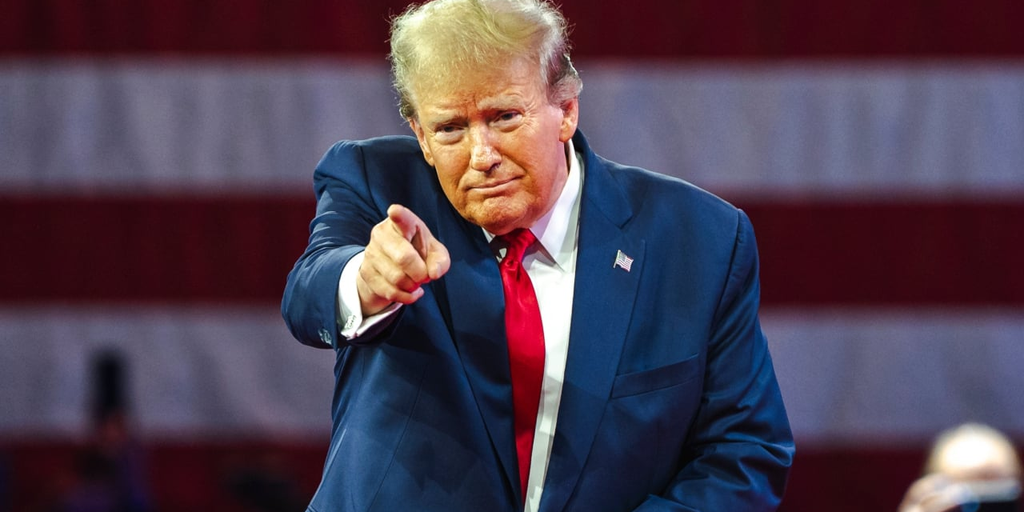
Crypto industry advisers were keen to push ahead with legislation at a meeting with lawmakers Wednesday but shied away from one topic: President Donald Trump’s meme coin launch and digital asset ventures.
All agreed that regulating the fast-moving space was necessary but when pressed at a U.S. House Financial Services Committee on Trump’s potential conflicts of interest, speakers were quick to skirt the issue.
The hearing aimed to clarify regulatory and other issues related to the burgeoning digital assets industry. But questioning from Democratic and more pro-crypto Republicans reflected the differing attitudes toward crypto between the two major U.S. parties. Democrats took particular issue with Trump’s personal crypto initiatives, which have raised concerns about his using his position to advance his business goals.
Ahead of his inauguration, President Trump launched a meme token—Official Trump—which shot up in value before crashing hard.
“As Americans wonder how they will afford retirement or afford groceries, Trump is sitting pretty,” Maxine Waters (D-Calif.) said at Wednesday’s meeting.
“We need to stop Trump before he takes any steps further on crypto legislation,” she continued, claiming President Trump had doubled his wealth via various crypto ventures over the past year.
Alexandra Thornton, senior director of financial regulation at the Center for American Progress, said she could not comment on the President’s business ventures but added that fraud still existed in the space.
Rep. Stephen Lynch (D-Mass.) asked Rodrigo Seira, special counsel at Cooley LLP, if there was a problem with President Trump’s meme token launch and the asset’s subsequent price crash.
Seira refused to comment on any specific project.
Lynch added: “It is also notable that under the Trump administration, the SEC has dropped almost every lawsuit against some of the worst offenders in the crypto industry.”
Trump’s Solana-based token, TRUMP, is now nearly 89% down from its January high.
Some members of the Democratic Party have argued that President Trump is too involved in the crypto space and is unfairly making money.
Lawmakers are currently deciding how best to move forward with regulating stablecoins: digital tokens pegged to the U.S. dollar and other non-volatile assets.
Trump campaigned as a pro-crypto Republican to help the digital asset space, and received funding from crypto entrepreneurs and Silicon Valley bigwigs.
The president has backed a DeFi project, and the Trump family has launched a stablecoin, the World Liberty Financial USD1 token.
Since Trump took office, regulators have taken a different approach to the Securities and Exchange Commission’s prior tactics of hitting major crypto companies with lawsuits.
Financial watchdogs have scrapped cases against Kraken, Coinbase, Robinhood, and others.
The SEC has also launched a new task force under commissioner Hester Peirce, and rescinded its Staff Accounting Bulletin (SAB) No. 121, which required companies to record a liability and a corresponding asset for crypto assets held on behalf of users.
Critics, including Peirce, argued that the guidance added unnecessary complexity and created an uneven playing field for crypto platforms.
In February, the regulator said that meme coins and tokens did not fall within its jurisdiction.
Edited by James Rubin
Daily Debrief Newsletter
Start every day with the top news stories right now, plus original features, a podcast, videos and more.
Source link

CryptoPunks NFT Sells for $6 Million in Ethereum—At a $10 Million Loss

SEC drops suit against Helium for alleged securities violations

Tokenized Gold Nears $2B Market Cap as Tariff Fears Spark Safe Haven Trade

Ross Ulbricht To Speak At Bitcoin 2025

Solana Eyes $200 Target As It Gains Momentum – Recovery Could Mirror 3-Month Downtrend

BTC-denominated insurance firm meanwhile secures $40m in VC funding

‘You Want To Own the Most Hated Thing’ – Arthur Hayes Says Ethereum Set To Outrun Solana As Memecoin Craze Fades

Crypto Braces for a Hidden $4.5 Trillion Catalyst for Bitcoin, Ethereum, Cardano, XRP Price

Block Agrees to $40M NYDFS Penalty Over Lackluster Compliance Program

Top Bitcoin miners produced nearly $800M of BTC in Q1 2025

Tariffs, Trade Tensions May Be Positive for Bitcoin (BTC) Adoption in Medium Term: Grayscale

The U.S. Tariff War With China Is Good For Bitcoin Mining

Dogecoin Bull Div Plays Out, Analyst Maps Next Price Targets

Web3 search engine can reshape the internet’s future

Billionaire Ray Dalio Says He’s ‘Very Concerned’ About Trump Tariffs, Predicts Worldwide Economic Slowdown

Arthur Hayes, Murad’s Prediction For Meme Coins, AI & DeFi Coins For 2025

Expert Sees Bitcoin Dipping To $50K While Bullish Signs Persist

Aptos Leverages Chainlink To Enhance Scalability and Data Access

Bitcoin Could Rally to $80,000 on the Eve of US Elections

Crypto’s Big Trump Gamble Is Risky

Sonic Now ‘Golden Standard’ of Layer-2s After Scaling Transactions to 16,000+ per Second, Says Andre Cronje

Institutional Investors Go All In on Crypto as 57% Plan to Boost Allocations as Bull Run Heats Up, Sygnum Survey Reveals

Ripple-SEC Case Ends, But These 3 Rivals Could Jump 500x

Has The Bitcoin Price Already Peaked?

A16z-backed Espresso announces mainnet launch of core product

The Future of Bitcoin: Scaling, Institutional Adoption, and Strategic Reserves with Rich Rines

Xmas Altcoin Rally Insights by BNM Agent I

Blockchain groups challenge new broker reporting rule

I’m Grateful for Trump’s Embrace of Bitcoin

Trump’s Coin Is About As Revolutionary As OneCoin
Trending

 24/7 Cryptocurrency News5 months ago
24/7 Cryptocurrency News5 months agoArthur Hayes, Murad’s Prediction For Meme Coins, AI & DeFi Coins For 2025

 Bitcoin3 months ago
Bitcoin3 months agoExpert Sees Bitcoin Dipping To $50K While Bullish Signs Persist

 24/7 Cryptocurrency News3 months ago
24/7 Cryptocurrency News3 months agoAptos Leverages Chainlink To Enhance Scalability and Data Access

 Bitcoin5 months ago
Bitcoin5 months agoBitcoin Could Rally to $80,000 on the Eve of US Elections

 Opinion5 months ago
Opinion5 months agoCrypto’s Big Trump Gamble Is Risky

 Altcoins2 months ago
Altcoins2 months agoSonic Now ‘Golden Standard’ of Layer-2s After Scaling Transactions to 16,000+ per Second, Says Andre Cronje

 Bitcoin5 months ago
Bitcoin5 months agoInstitutional Investors Go All In on Crypto as 57% Plan to Boost Allocations as Bull Run Heats Up, Sygnum Survey Reveals

 Price analysis5 months ago
Price analysis5 months agoRipple-SEC Case Ends, But These 3 Rivals Could Jump 500x


